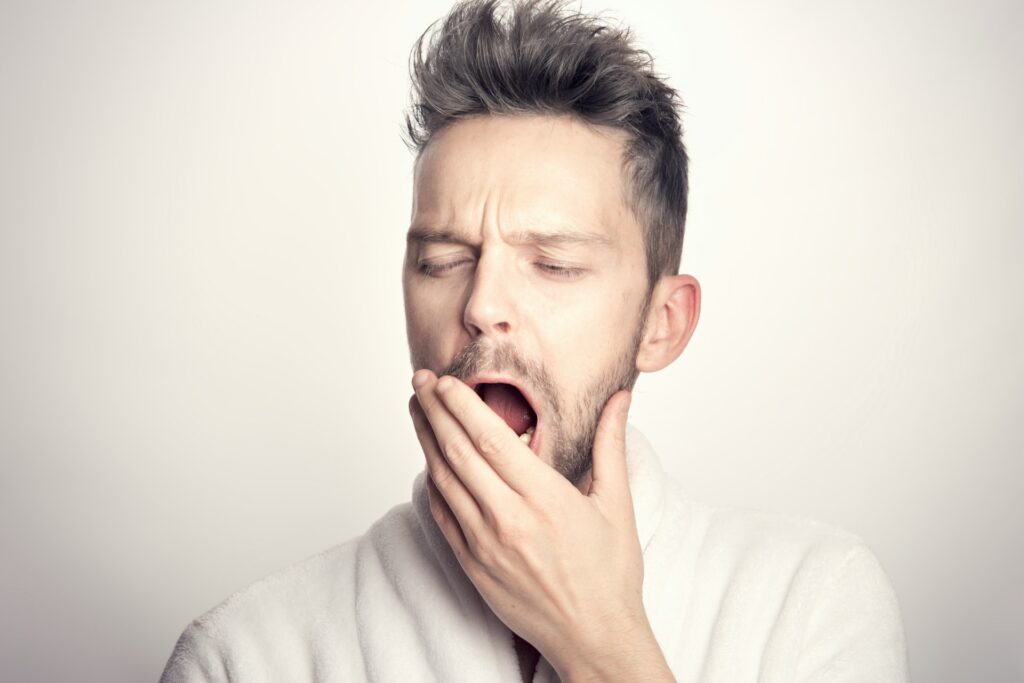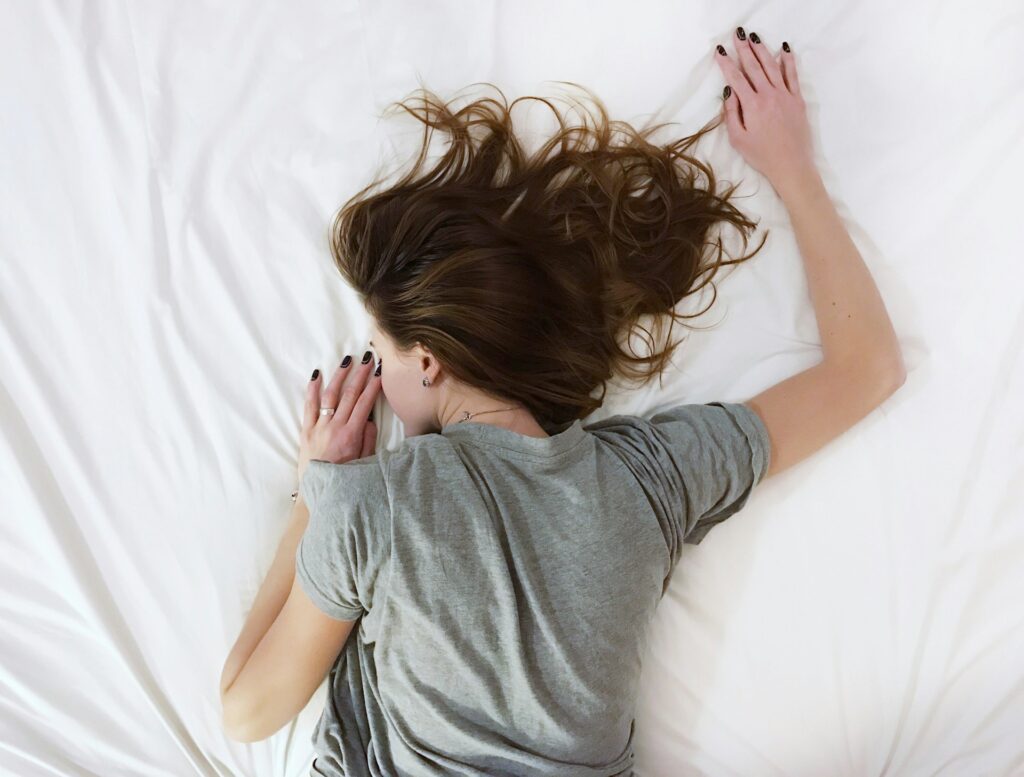No one can do without a nightly escape to bed, even those who only sleep for a few hours. Yet it’s so easy to take the incredible recharging process for granted. I found these sleep facts to illuminate just what our body needs.
You may or may not be having trouble sleeping at the moment. But if you keep getting that tired-but-wired feeling after a busy day, there could be some things you need to change. I’m no doctor, but these sleep facts helped me understand what good sleep relies upon.
Some of these may be a refresher of what you already know. Let’s see what we can do to help our body drift into unconsciousness properly.
1. Constantly feeling tired should not be normalised
When you think about how busy you are, you probably don’t wonder much why you’re tired all the time. Sleep problems can be traced back to stress most of the time. But even though we accept exhaustion as a typical feature of the daily grind, the body does not.
Here’s what your body wants you to know.

Sleep deprivation is not ok. Sleeping less than six hours a night weakens your immune system and increases your chances of developing cancer. Short nights of sleep increase your likelihood of blocked arteries, directly impacting your cardiovascular health. Even a moderate reduction of sleep for one week puts you in the same boat as a pre-diabetic.
Maybe you don’t feel as though you’re crawling through each day from exhaustion, but you’re actually sleep-deprived if you sleep longer on weekends, have difficulty falling and staying asleep, wake up too early or have poor sleep quality.
What’s more, feeling sleepy after a heavy meal is a sign of sleep deprivation according to Maas and Robbins (2011), as it unmasks the fatigue you’re already living with.
The morbid thing is that sleep deprivation really does shorten your life.
So, how much sleep do we need? It’s common knowledge that adults need between 7.5 and 9 hours of sleep per night. Sleeping 8 or 9 hours every night should not be a luxury but a routine.
2. Your body has a lot to process at night
According to Tononi and Cirelli (2014), sleep is the price your brain pays for plasticity.
Everything you’re taking in during the day, tasks you’re juggling, relationships you’re surrounded with, changes, shocks and new information requires careful processing by your neurons. All your memory pathways are stored and strengthened at night to help you learn about your environment.

Your brain undertakes yet more essential housework when you’re in a deep sleep. It replenishes calcium in your synapses, recycles membranes, rests mitochondria and clears up extracellular space.
It doesn’t stop there. Your immune system produces hormones called cytokines to respond to infectious diseases and inflammation. Sleep gives your heart and vascular system a rest. It regulates your appetite and your weight. It also improves fertility in women.
That’s a lot of jobs in one night. The more time and consistency we give our bodies, the better.
3. Sleep is a natural but tender cycle
Imagine life before an alarm clock. Or a clock at all.
People used to go to sleep with the darkness and rise with the sun. Imagine sleeping eleven hours a night. That’s how long people slept back in the day.

We need alarm clocks to get us started on our busy lives. But it’s not natural. Our bodies are governed by our internal biological clock which is designed to respond to light signals. So, without artificial lights, we would sleep more in winter and less in summer by rising with the sun.
It’s obvious, but our body knows best when we need to hit the sack. We’re carefully tuned to feel drowsy when we’ve built up enough adenosine during the day and when melatonin kicks in as darkness falls.
But that sleepy feeling is masked by artificial lights, phones, TVs, laptops – any screen you can think of. Without listening to our body, we easily stay up far too late, have trouble sleeping and miss out on valuable restoration.

We know the sleep disruptors pretty well. Caffeine (this takes 6-8 hours to wear off completely). Nicotine. Alcohol (this prevents deep REM sleep). Large meals or exercise within three hours of bedtime. A bedroom that’s too warm or too cold. Stress. Thanks to these sleep stealers, you feel worse in the morning.
Try not looking at any screens an hour before bedtime and having a lighter meal at night. Make sure your room is cool but comfortable. You could give yourself a winding down routine (like stretching) in the evening or do something enjoyable to relax.
4. Certain hours of the night are critical for sleeping
Your pineal gland is responsible for producing certain hormones every night. In winter, it releases the hormones between the hours of 9pm and 2am in winter, and in summer, between 10pm and 3am. This means we should be in bed during these hours.
We need all of those hormones. Seratonin balances your mood (grumpy in the morning, anyone?). Melatonin is responsible for healing during rest. Arginine vasotocin puts you into a deep sleep and is a natural painkiller. Epithalamin increases learning capacity.
If we allow ourselves to sleep at the right hours, we gain all these good things every single night. If we don’t, we lose out.

Wrapping up (in a duvet)
Busyness and stress need to know their place in our lives. Otherwise, they invade our precious recovery hours at night and the resultant tiredness exacerbates our problems the next day.
Taking care of your sleep schedule will take care of your daytime schedule too. Learning from these sleep facts should help you to be far more alert, calm, energised and productive.
Which of them struck you the most?
Read more of my blog here or check out my coypwriting portfolio here.
